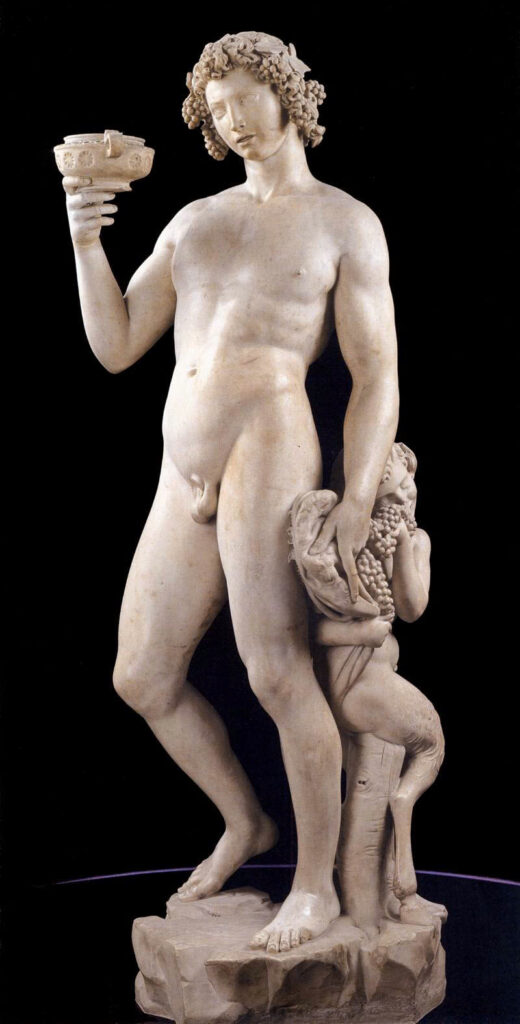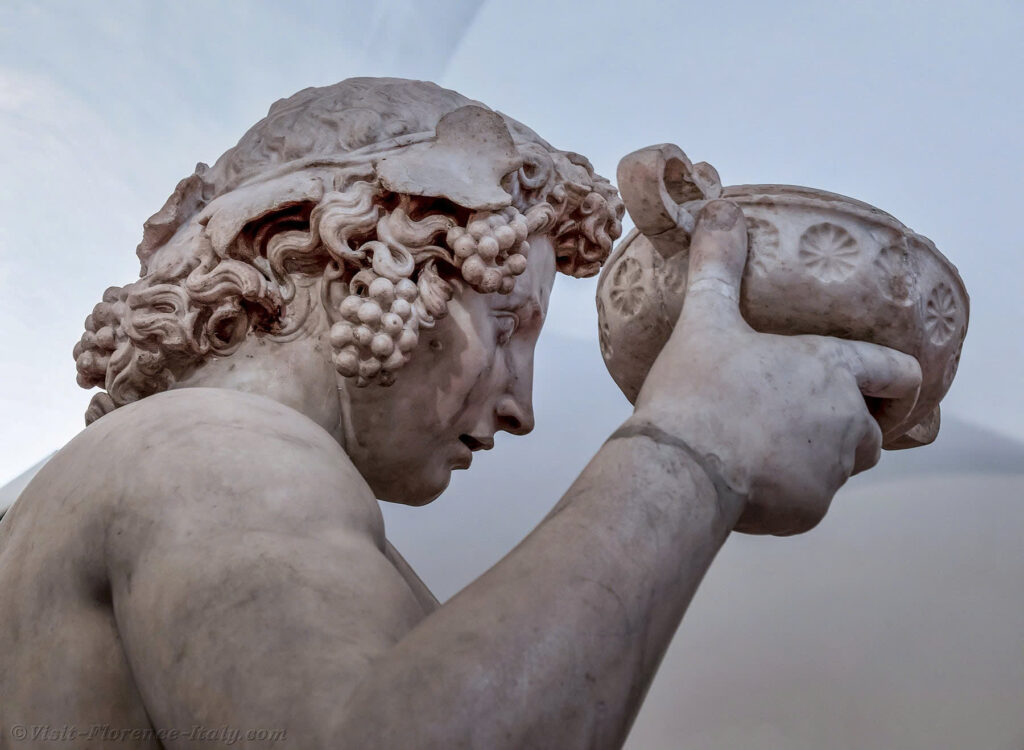A Young Artist’s Daring Gambit
At the tender age of 21, Michelangelo Buonarroti, destined to become one of history’s most celebrated artists, embarked on a bold scheme. He sculpted a “Sleeping Cupid,” deliberately aging it to pass as an ancient artifact. This cunning deception caught the eye of Cardinal Raffaele Riario, a prominent art patron in Rome.

The Cardinal’s Challenge
When the truth of Michelangelo’s ruse came to light, the Cardinal, rather than punishing the young artist, was impressed by his extraordinary talent. He invited Michelangelo to Rome, challenging him to create an original piece that would stand apart from classical forms.
The Birth of Bacchus
A Drunken God Takes Shape

On July 4, 1496, Michelangelo began his ambitious project – a statue of Bacchus, the Roman god of wine. Completed in 1497, this 2-meter-tall masterpiece depicted Bacchus in a state of intoxication, holding a wine goblet and grapes, with a mischievous satyr at his feet.
Rejection and Recognition

Despite its brilliance, Cardinal Riario rejected the Bacchus statue, possibly finding it too provocative. Undeterred, Michelangelo saw his work find a home in the collection of banker Jacopo Galli, before eventually being acquired by the Medici family and returned to Florence.
Legacy of a Young Genius

Today, the Bacchus statue stands in the Bargello National Museum, alongside the Pietà, as one of only two surviving works from Michelangelo’s early Roman period. These pieces not only showcase his extraordinary skill but also represent the crucial stepping stones in his journey to becoming one of the greatest artists in history.

Michelangelo’s story teaches us that true genius often emerges from challenges and the courage to face rejection. His early experiences, beginning with a daring deception and culminating in the creation of Bacchus, laid the foundation for a legacy that continues to inspire and awe art lovers worldwide.

